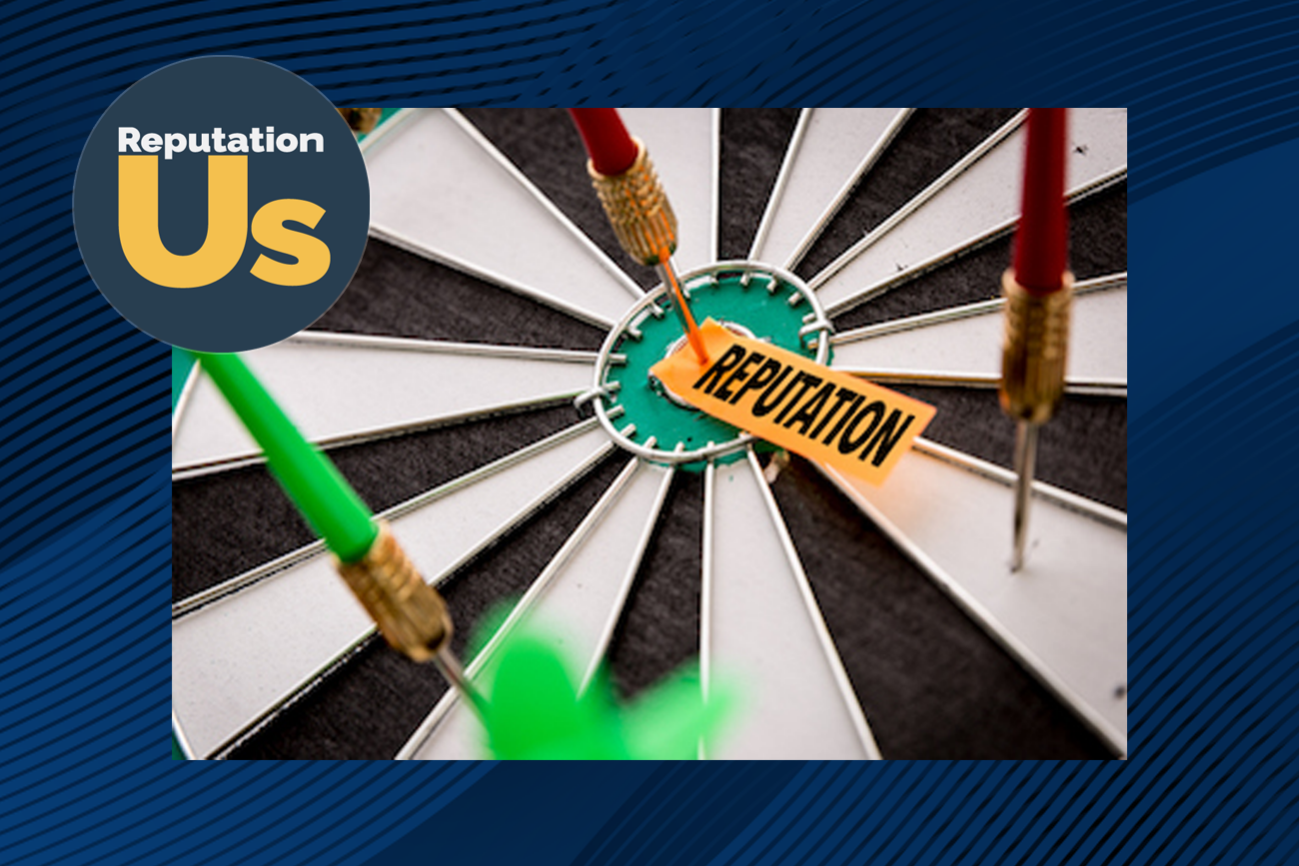Numerous corporate scandals in the past decade illustrate just how unaware boards of directors can be about their companies’ deeply rooted problems. Many a spotlight shines on low pay rates and overpriced products, while objectification, embezzlements and internal espionage amped up the shock value. Obliviousness is not without its costs. In many cases a board’s lack of diligence contributed in part to its company’s loss of reputation.
Board’s Responsibility
If you are on a board, you may believe the primary responsibility for safeguarding your company’s reputation lies with your management. But through oversight of the company at large, the corporate board also plays a crucial role in managing reputational risk.
Recently published by the public relations firm Weber Shandwick, in partnership with KRC Research, are findings of their collaborative survey, “The State of Corporate Reputation in 2020: Everything Matters Now.” It found nine in 10 executives (91 percent) say their company’s reputation is important to their board of directors, with about half (52 percent) reporting it to be very important to the board.
Those companies where reputation is especially important to the board are public companies and those with a multinational focus. Underscoring the value of reputation, boards of companies that have recently experienced a reputation crisis within the past two to three years are even more focused on reputation.
On the flip side, what does it say that almost half the boards of directors surveyed don’t categorize their corporate reputation as deserving of full attention daily?
“Boards are absolutely culpable if they don’t take reputation management seriously,” says Casey Boggs, president of ReputationUs and a notable speaker on crisis mitigation. “Recent history shows the courts—and the public—no longer indemnify boards for missed targets. As a board member it is imperative to understand your reputational risks and consider crisis mitigation and management as a preparatory step, rather than playing defense.”
Environmental, Social and Governance (ESG)
No doubt you’ve seen environmental, social and governance (ESG) issues appear on your board agenda more than they used to. External forces impacting ESG areas are challenging for boards of directors because of their uncertainty and unpredictability.
In November, the Harvard Law School Forum on Corporate Governance published ESG Governance: Board and Management Roles & Responsibilities. The report notes, “Under state law, directors have fiduciary duties … to adequately inform themselves, to understand and assess material issues in making business decisions, to implement oversight structures and, in some cases, to investigate ‘red flags’ relating to such issues.”
The EY Center for Board Matter’s review of the 79 Fortune 100 companies that filed proxy statements as of June 22, 2021, revealed that of the 85 percent of companies disclosing board committee oversight of ESG matters (compared to 78 percent in 2020), most allocate this responsibility to the nominating and governance committee.
So which committee oversees reputation management? If your board wants to be associated with a company that has a good reputation rather than being negatively perceived, it is EVERYONE’S responsibility.
Board Integrity & Motivations
Boards of directors historically operated behind closed doors, unseen and unknown to the outside world. By most accounts, the board did not have a public reputation of its own. This is changing. During a crisis, while the reputation of the company is at stake, a board of directors has its own reputation to consider as well.
Research conducted by public relations firm Edelman concludes that a board of directors does indeed possess its own reputation, which must be actively considered and managed. A board’s reputation is most acutely on display during times of severe corporate controversy. In these circumstances, the specific actions of the board come under scrutiny and become an unquestionable factor in public trust of the company.
Shareholder activism on social media has intensified the spotlight on boards’ integrity and motivations. Activists may criticize the qualifications of individual board members; accuse boards of being asleep at the helm; or chide boards for being subservient to management. All of this creates a reputation of the board that can be harmful for the company and impact how it operates.
“As a board member you have to consider if the organization is one you want to be a part of with a good image, good products and good people. Conversely, if the organization is not doing well, your board reputation—and your personal reputation—are also at stake,” says Boggs. “These aspects give people heartache and headache being part of a board.”
Four Board Actions
When it comes to reputation management of the business and the board, here are four key steps required of your board of directors:
Action 1: Consider Your Reputation Status
As a board, you must look at the organization at large. What don’t you know about its reputation? Considering your vulnerabilities takes some solid research.
This is especially important during a merger and acquisition. If you are a mid-sized company looking to merge, part of dutiful checks and balances is investigating your partner organization’s reputation to confirm it is one you want to join with.
Action 2: Prepare For 2022 Crises
To adeptly represent its shareholders, a board must oversee the risk management of the organization. Are you prepared for a crisis in the event your company’s reputation is tainted? This requires a task force to expose your vulnerabilities ahead of time, and a crisis plan to manage them.
Sometimes even managing risks well is not enough to mitigate them. A company’s reputation may be tarnished by an unexpected source. Corporate boards must work with management to explore both obvious and new or nontraditional potential sources of risk.
Even when risks are identified, in order to safeguard a company’s reputation a board must continue to ask, “So what? What does this risk mean? How can we do damage control? And what happens if things go wrong anyway?” In the event of a reputational crisis, debating these questions in advance and writing them into a crisis management plan could mean the difference between a company’s success or its failure.
Action 3: Monitor Reputation Benchmarks
There is a risk in well-run companies that reputation management procedures may lose effectiveness. Leadership may conduct an annual review of risk, but stop short of determining where the next problem will come from, or what to do about it. So how can boards take initiative to revisit the nature of the risks they face and manage those risks before they become crises?
One way is to check your reputation often. Benchmark it year-over-year. Scoring your reputation and measuring it can show you whether you are making improvements, or going backwards. A reputation management firm like ReputationUs can help you with this.
Action. 4: Review & Revisit Board and Executives
Finally, while it may be difficult, you must look at the individual members of the board itself, and even your executive leadership team. How are their reputations personally? Are they still the right people for the positions, or is it time for a change? You may decide recruiting new people can help shift your reputation in a positive direction.
“From a reputation perspective, risk management for boards comes down to ‘active oversight,’” says Boggs. “Reputation can be nebulous at times. Identifying potential impacts before they happen, paired with crisis mitigation through planning and training, can give your board and your executives the confidence to identify reputational vulnerabilities before they become financial and operational issues.”








